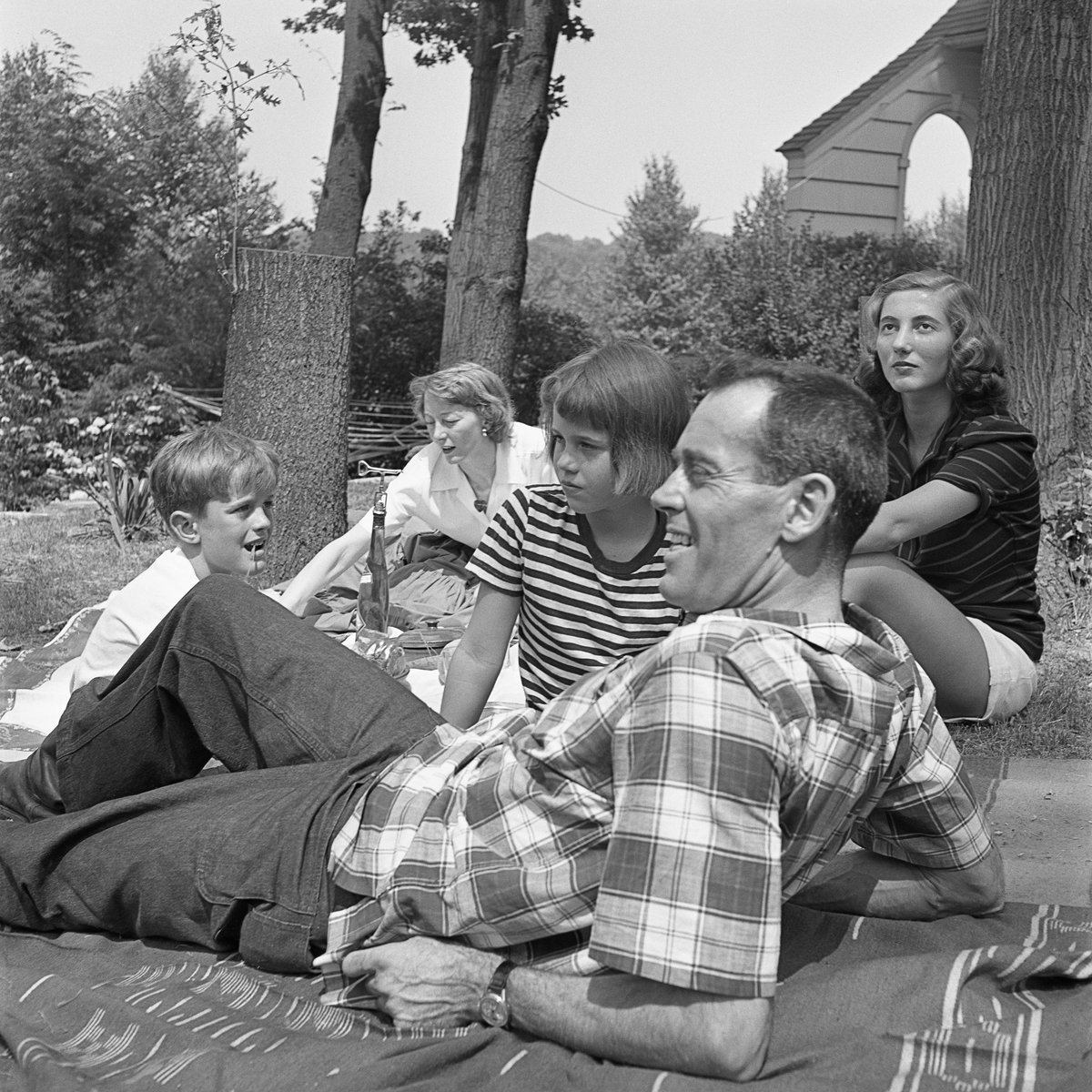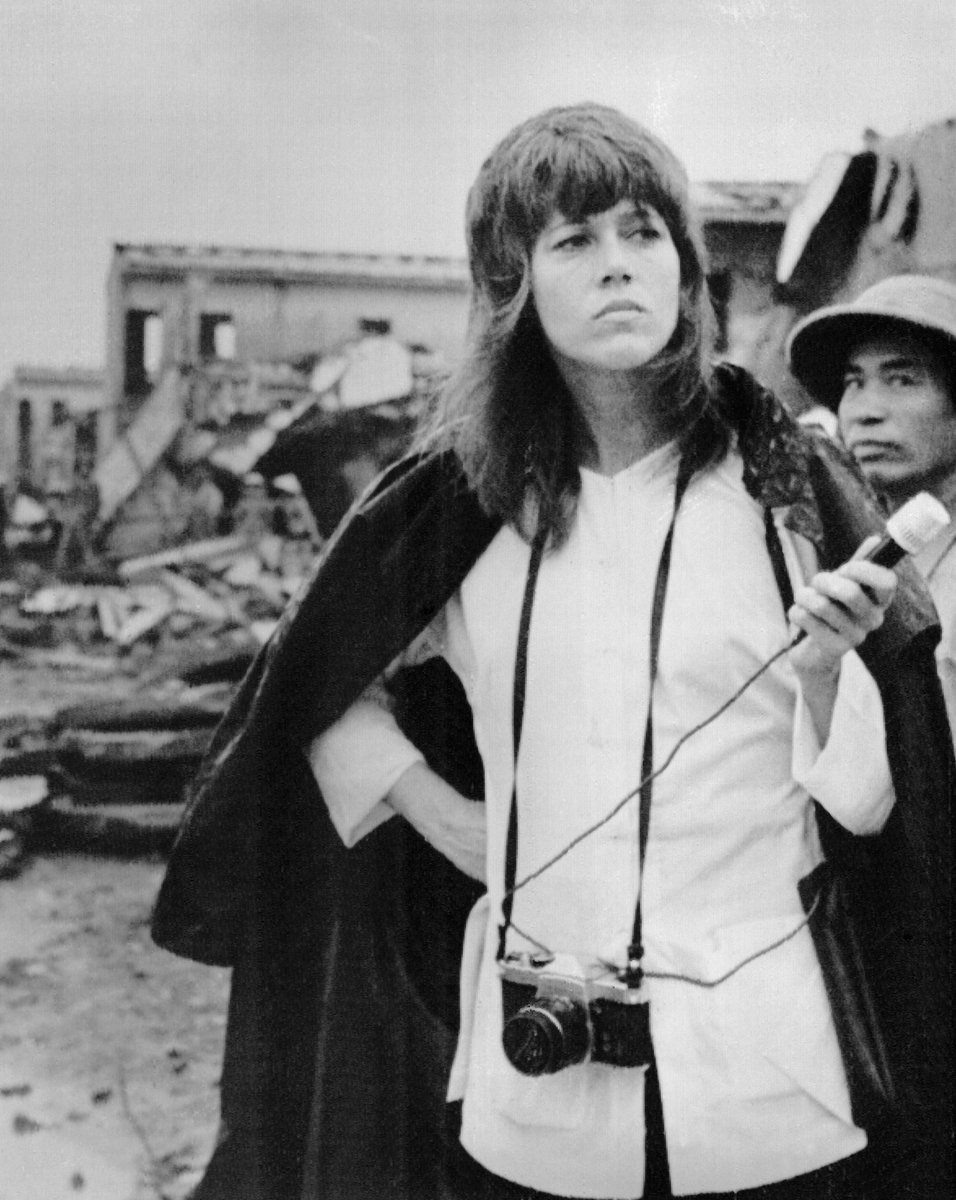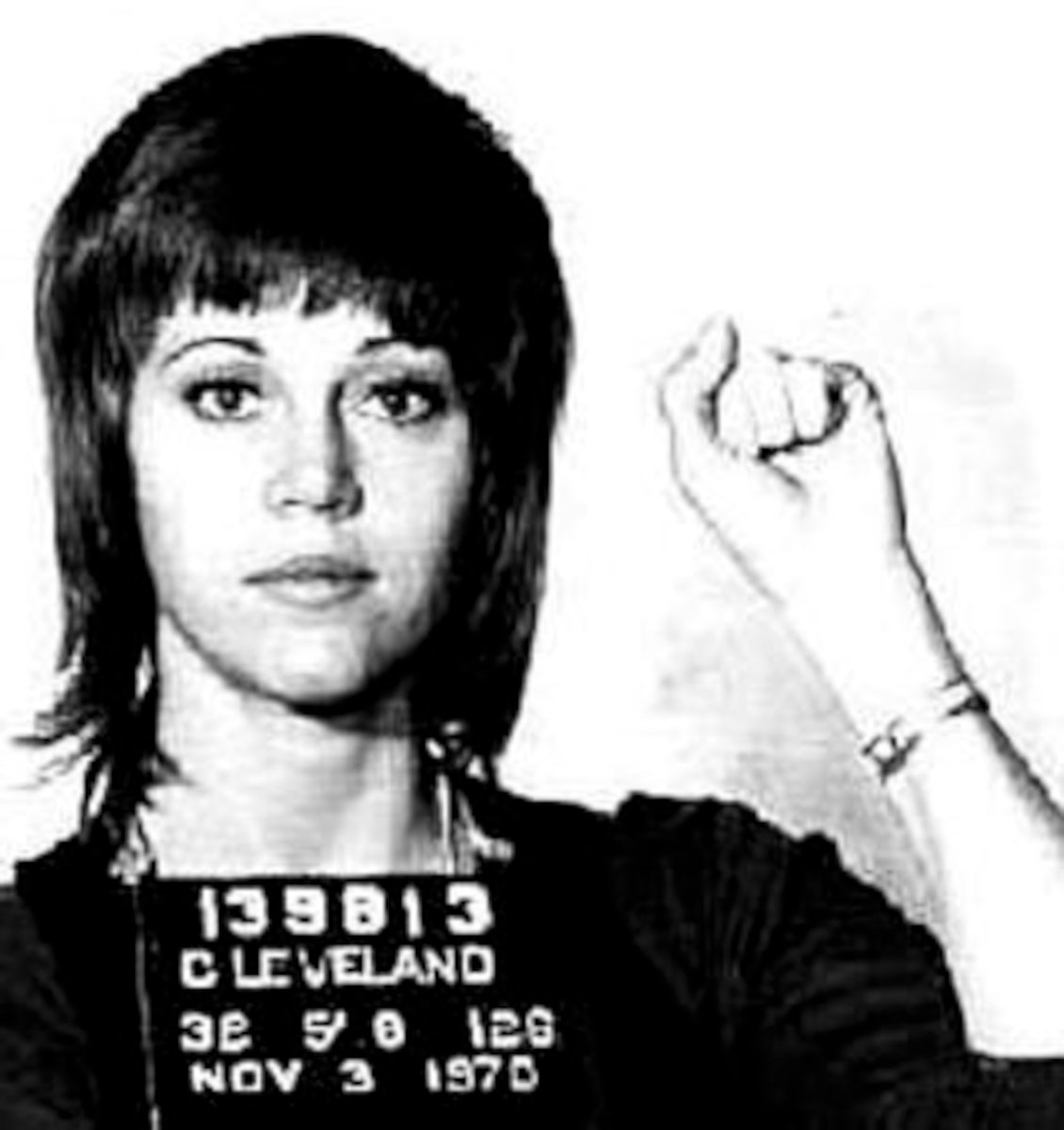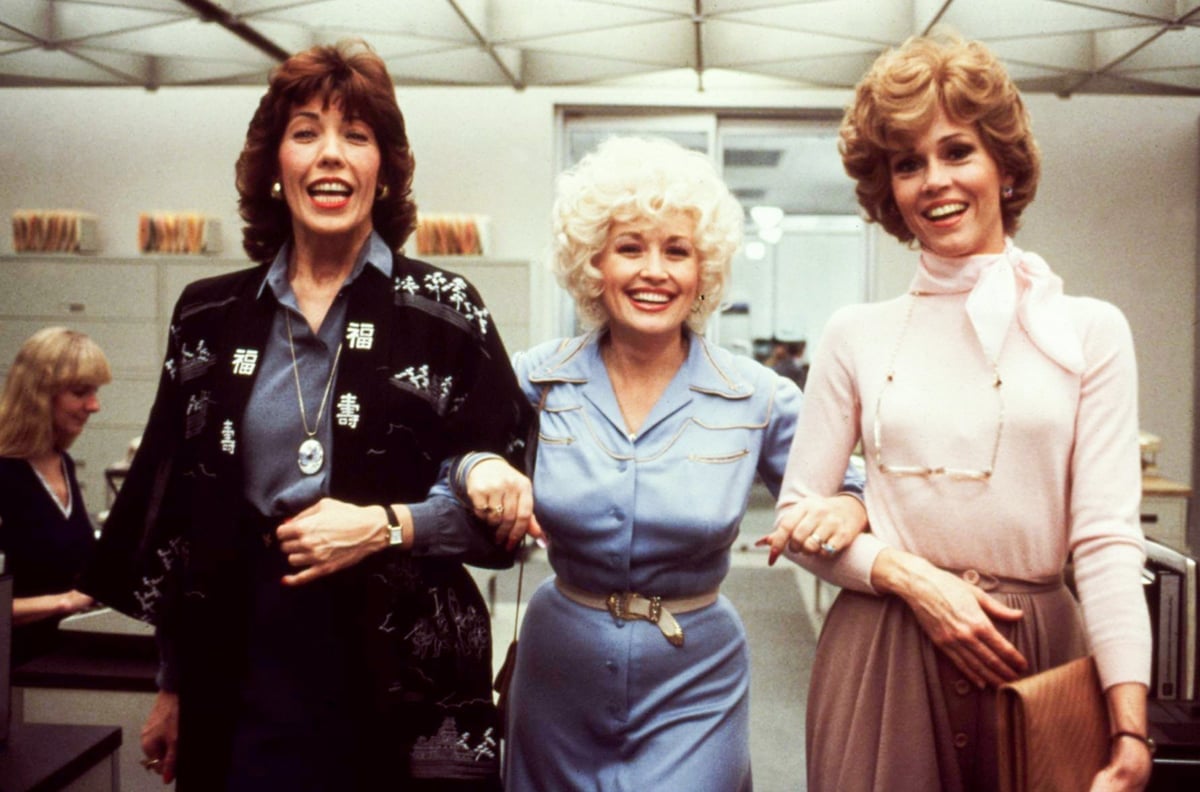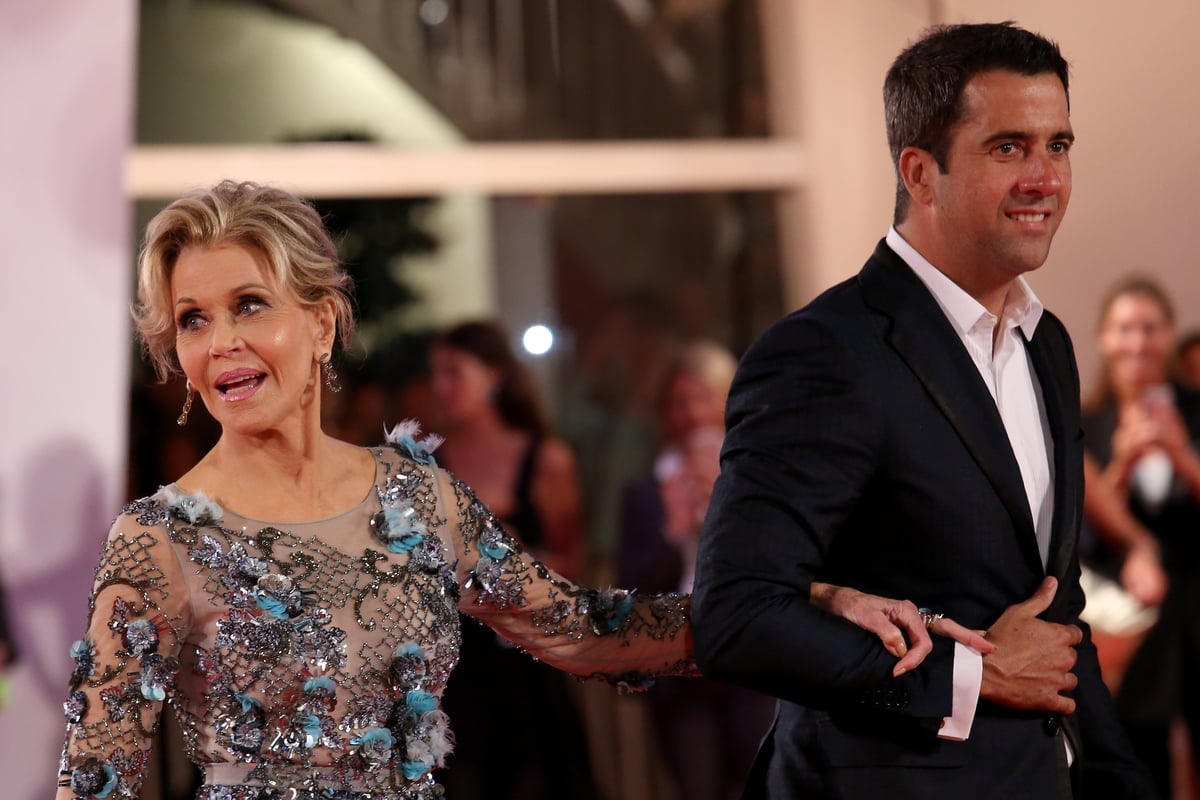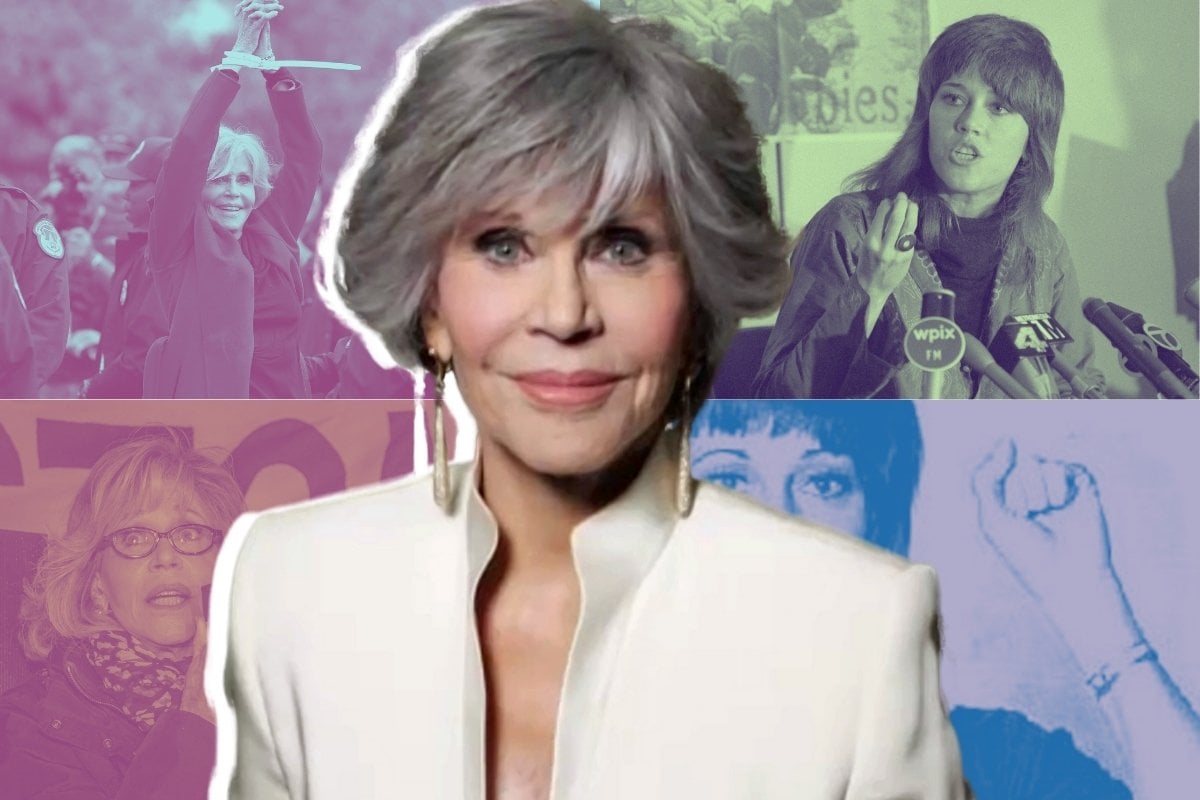
In 2019, at the age of 81, Jane Fonda ended up in handcuffs four Fridays in a row.
Grinning behind large sunglasses, the two-time Oscar winner was filmed being led away from the US Capitol building in Washington D.C. for engineering a sit-in at the Hart Senate Office Building. Her goal: to encourage lawmakers to take urgent action on the climate crisis.
These 'Fire Drill Fridays', which she coordinated with Greenpeace and Code Pink, attracted many of Fonda's famous friends and concerned citizens eager to curb global greenhouse gas emissions.
The movement adopted the colour red, and so each Friday, Fonda wrapped herself in a chic, crimson coat she'd bought on sale (her last ever clothing purchase), and marched down to the Capitol.
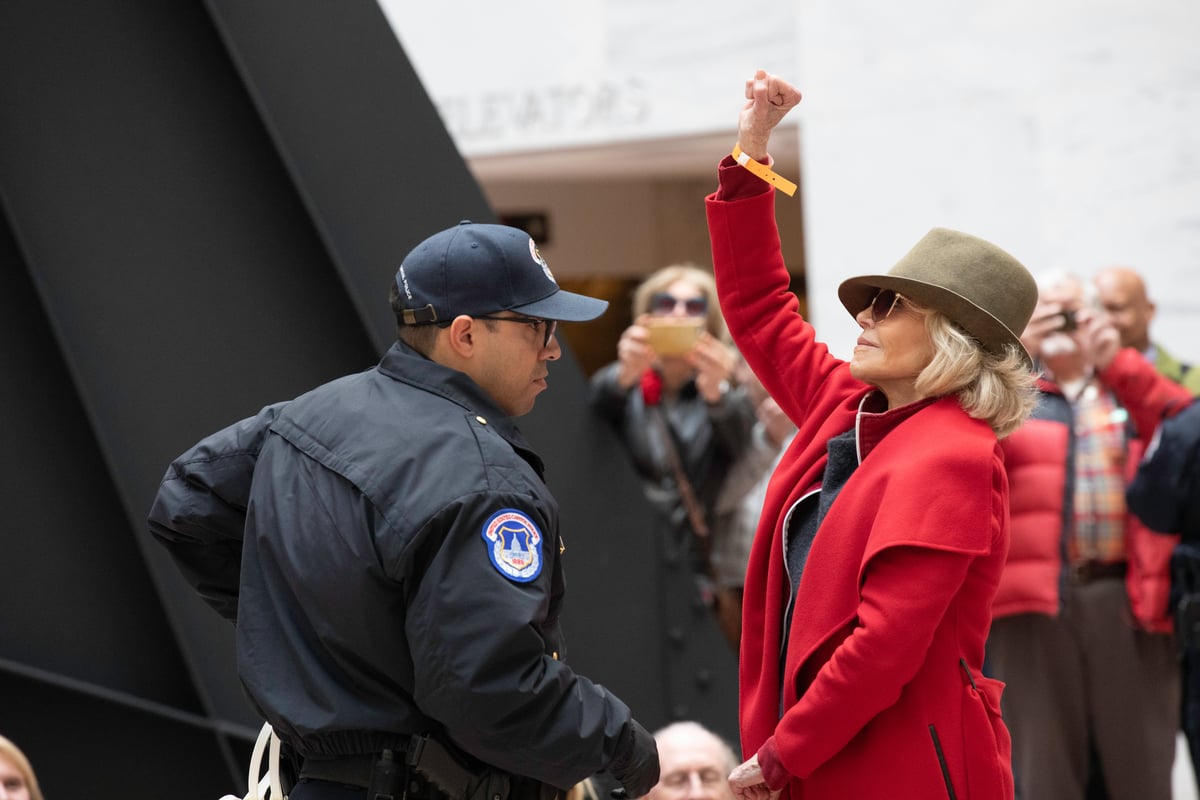 Jane Fonda being detained at a Fire Drill Friday rally. Image: Getty.
Jane Fonda being detained at a Fire Drill Friday rally. Image: Getty.

